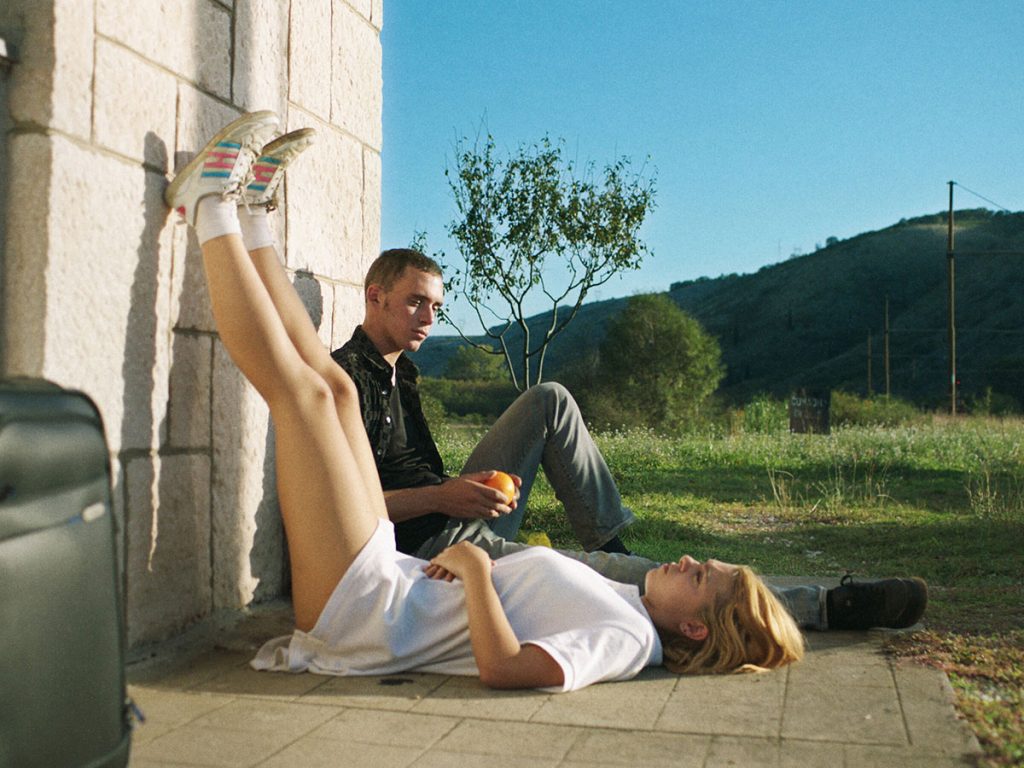Take Me Somewhere Nice presents an offbeat spin on the road trip and coming of age narratives in this tale of a teenager’s hapless journey through Bosnia.
After hearing that her estranged father is in the hospital, Alma (Sara Luna Zoric) travels from her home in the Netherlands to his native country of Bosnia to visit him. When she arrives in Bosnia, her careless cousin Emir (Ernad Prnjavorac) refuses to take her to the hospital, leaving her to wander around her family’s homeland that she barely knows. Meanwhile, Alma meets Emir’s friend Denis (Lazar Dragojevic) and a mutual connection forms between the two, starting with a sexual encounter and followed by uncertain feelings. Alma decides to go visit her father by herself, but is quickly stranded and loses her suitcase. After meeting random characters like a nightclub singer and traveling politician, Alma is reunited with Emir and Denis, but her hapless journey is far from over. Running into car troubles, growing sexual tension, and a tragic revelation, Alma’s accidental journey leads to a series of unexpected experiences and discoveries.
Take Me Somewhere Nice is the debut feature of Ena Sendijarević, who took inspiration from her own cultural experiences between Bosnia and the Netherlands. Like Alma, Sendijarević describes herself as a “Dutch girl with Bosnian roots,” but carefully wrote Alma as a much different character than herself to explore a broader story about complicated relationships between family, culture, and home. She crafts Alma with an intriguing sense of ambiguity, never fitting into one constant identity or another. Alma is stuck in a cultural limbo of sorts, with no strong ties or sense of home to either country—she doesn’t like living in the Netherlands and she feels like a foreigner in Bosnia. Defined by frequent instances of “in betweenness,” such as switching between languages and her ambiguous age floating between youth and adulthood, Alma is a rich, complicated character to explore these thematic dynamics, and while she’s often difficult to truly comprehend, Zoric’s quiet performance grounds her with an organic naivete.

Sendijarević’s film serves as both a coming-of-age story and a road movie but subverts a conventional approach for either of those, to mixed results. Unfortunately, Take Me Somewhere Nice doesn’t work as a compelling character drama since its protagonist often feels vague and inaccessible, and by the end, we understand that Alma has evolved in some way, but into what we don’t quite know. It doesn’t work as a successful road movie either because it doesn’t have a grounded sense of place. The Bosnia we see onscreen is heavily stylized with a bright color palette, and, even spatially, its portrayal feels very contained. Rather, Take Me Somewhere Nice is more about an internal journey, and the aesthetics reflect that, with frequent static shots that are meticulously framed but far too often appear uncomfortably close to their subjects. Not only are we missing wide shots, we’re also missing a greater sense of place, especially for an audience unfamiliar with the visual and cultural topography of modern Bosnia.
As intriguing as its thematic underpinnings are, Take Me Somewhere Nice is often a frustrating watch. Occasionally awkward pacing, a meandering plot, and distant characters all add up to an unengaging experience, and a sudden, unresolved ending that seems to come out of nowhere leaves you scratching your head trying to make sense of what you’ve just seen. By the end, you get the feeling that Take Me Somewhere Nice feels just as lost as Alma wandering around her foreign homeland, never quite sure where it’s going or how it’s going to get there.

